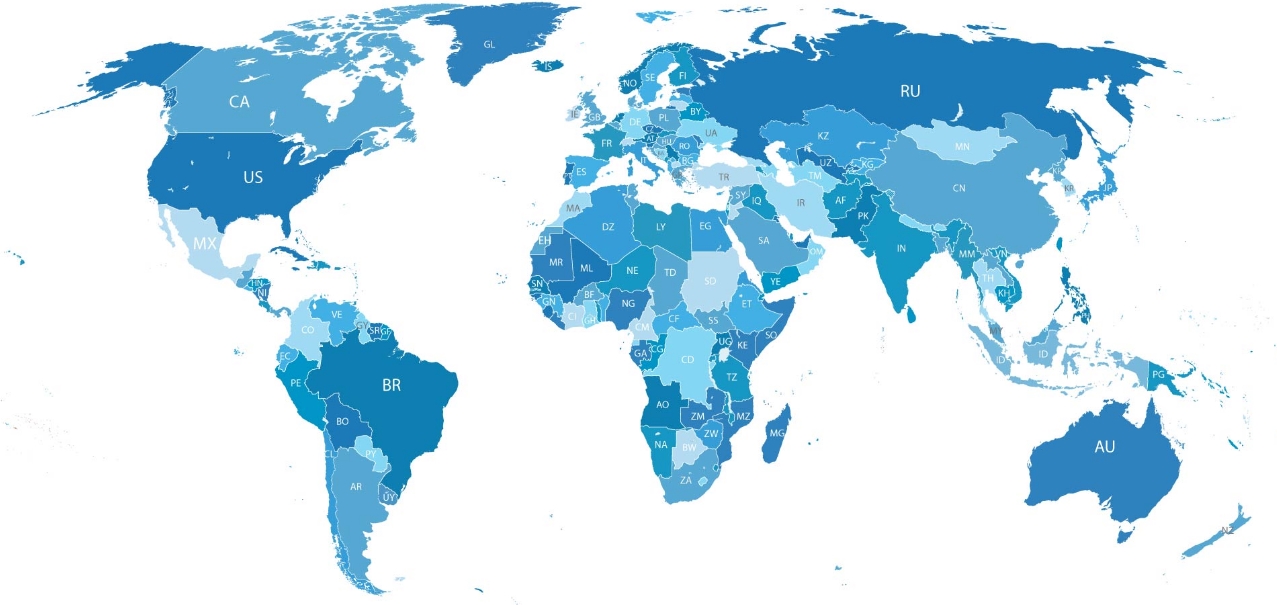Countries Names List
| A | B | C | D | E | F | G | H | I | J | K | L | M | N | O | P | Q | R | S | T | U | V | W | X | Y | Z |

There are approximately 195 countries in the world, each with its own unique history, culture, and geography. These countries are recognized by the international community as sovereign states, with their own governments and borders. They are diverse in size, population, and economic development, and each plays a role in shaping the global landscape.
One of the most notable differences between countries is their geography. There are landlocked countries surrounded by other countries, such as Bolivia and Austria, as well as island nations like Japan and the Maldives. Additionally, countries can have vastly different landscapes, from deserts and savannas to mountains and forests.
Another important aspect of countries is their population. Some countries are densely populated, like Bangladesh and India, while others have much lower population densities, such as Iceland and Greenland. Additionally, countries can have very different demographics, including differences in age, religion, and ethnicity.
The economies of countries are also incredibly diverse. Some countries are considered to be among the wealthiest in the world, like the United States and Switzerland, while others are among the poorest, such as Haiti and Afghanistan. Economic development can play a significant role in the quality of life for a country's citizens, and can impact everything from education and healthcare to infrastructure and employment opportunities.
Each country also has its own unique culture, shaped by its history and geography. This includes differences in language, cuisine, art, music, and religion. Understanding and appreciating these cultural differences can help to foster greater understanding and respect between countries and among people from different parts of the world.
In conclusion, the world's countries are incredibly diverse and offer a wealth of cultural, economic, and geographic differences. From the bustling cities of Tokyo and New York to the remote islands of the Pacific, each country has something unique to offer. Understanding and appreciating these differences is essential for building a more connected and peaceful world.
